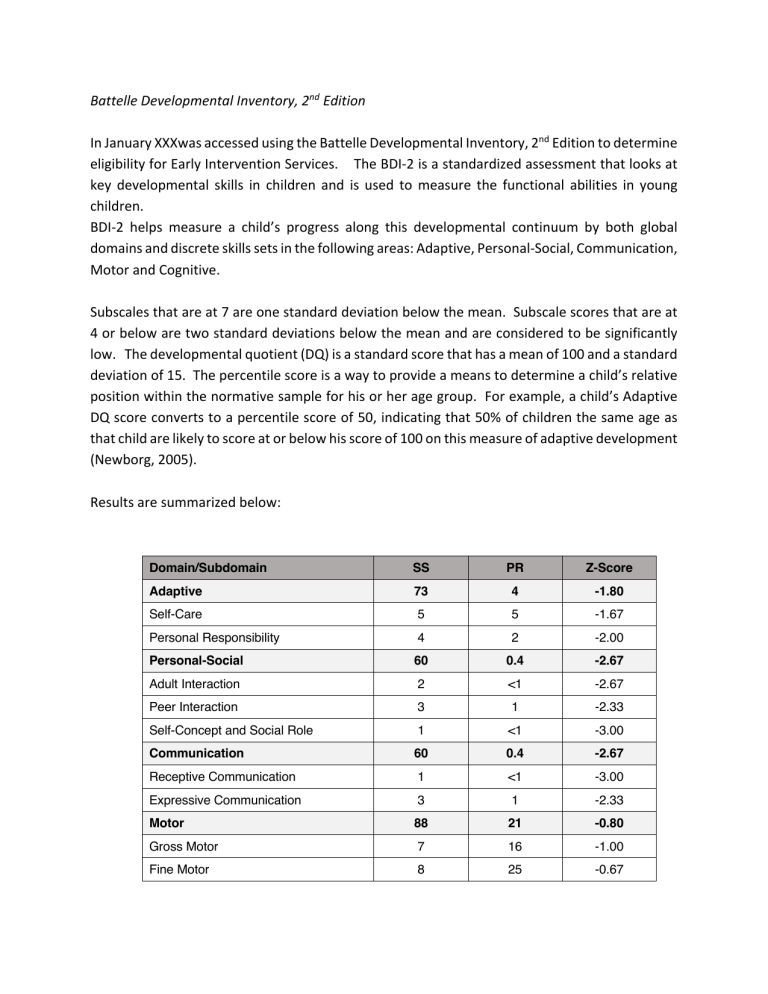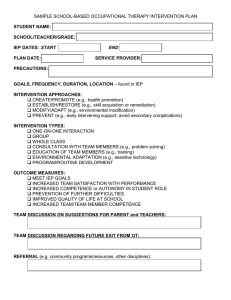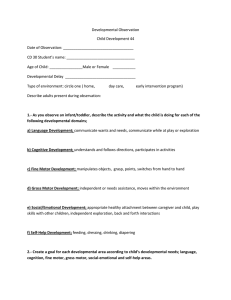
Battelle Developmental Inventory, 2nd Edition In January XXXwas accessed using the Battelle Developmental Inventory, 2nd Edition to determine eligibility for Early Intervention Services. The BDI-2 is a standardized assessment that looks at key developmental skills in children and is used to measure the functional abilities in young children. BDI-2 helps measure a child’s progress along this developmental continuum by both global domains and discrete skills sets in the following areas: Adaptive, Personal-Social, Communication, Motor and Cognitive. Subscales that are at 7 are one standard deviation below the mean. Subscale scores that are at 4 or below are two standard deviations below the mean and are considered to be significantly low. The developmental quotient (DQ) is a standard score that has a mean of 100 and a standard deviation of 15. The percentile score is a way to provide a means to determine a child’s relative position within the normative sample for his or her age group. For example, a child’s Adaptive DQ score converts to a percentile score of 50, indicating that 50% of children the same age as that child are likely to score at or below his score of 100 on this measure of adaptive development (Newborg, 2005). Results are summarized below: Domain/Subdomain SS PR Z-Score Adaptive 73 4 -1.80 Self-Care 5 5 -1.67 Personal Responsibility 4 2 -2.00 Personal-Social 60 0.4 -2.67 Adult Interaction 2 <1 -2.67 Peer Interaction 3 1 -2.33 Self-Concept and Social Role 1 <1 -3.00 Communication 60 0.4 -2.67 Receptive Communication 1 <1 -3.00 Expressive Communication 3 1 -2.33 Motor 88 21 -0.80 Gross Motor 7 16 -1.00 Fine Motor 8 25 -0.67 Perceptual Motor 8 25 -0.67 Cognitive 65 1 -2.33 Attention and Memory 1 <1 -3.00 Reasoning and Academic Skills 5 5 -1.67 Perception and Concepts 4 2 -2.00 BDI-2 Total 65 1 -2.33 Perception and Concepts 4 2 -2.00


